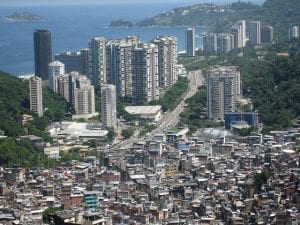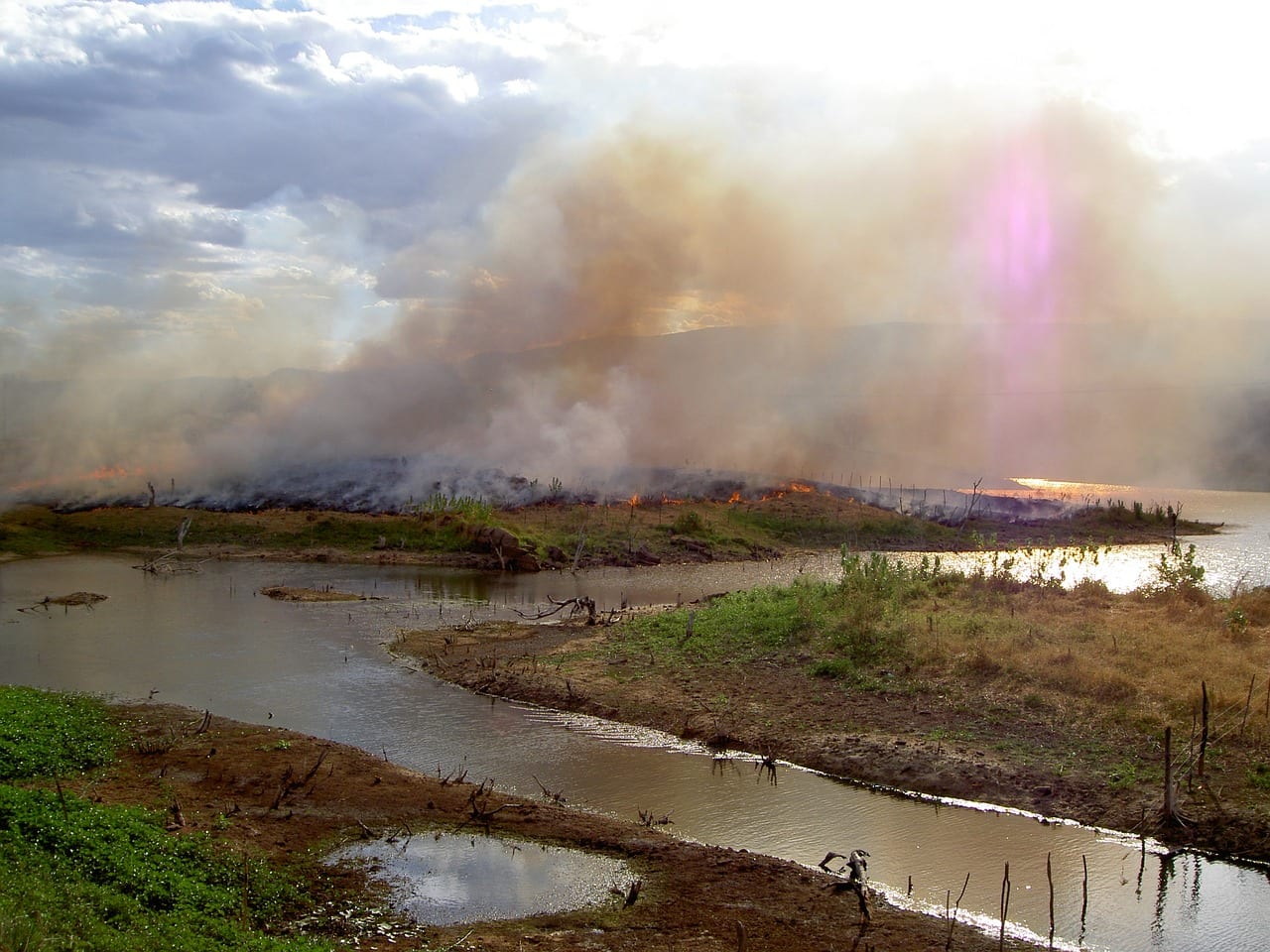With the Amazon burning on the altar of industrial capitalism, can we really criticize Brazilians (between bites of rainforest beef) for misplacing their priorities?
The Amazon rainforest is on fire. The news smoldered for a while while the rest of the world paid attention to the usual fare: sex scandals, the “health” of the industrial economy, and the latest inanities to spring from the twittery thumbs of the Chosen One, but then it flared up, illuminating all that is wrong with the civilization experiment. The burning Amazon is the story of human rights and material prosperity, and not only in the ways you might think. Let’s talk about it.
Humans made the Amazon, just as surely as they now set fires to burn it down. The forest is surprisingly full of tree species like cacao, rubber, and nuts that supported a large population until European diseases all but exterminated the forest gardeners who lived there. Nature reclaimed the land, going feral and sequestering so much carbon that it contributed to the Little Ice Age. The burning Amazon not only won’t sequester our carbon, it’s releasing carbon to the atmosphere.
That doesn’t mean that the forest is empty of human life, though. Indigenous people have managed to live there sustainably since time immemorial. Some groups remain uncontacted by modern civilization, and some groups protect their uncontacted relatives so they can remain free from the likes of us. The burning Amazon is not the only threat to the Indigenous way of life, though. Even before the blazes, loggers, miners, drug traffickers cut through the heart while farmers and ranchers nibbled away at the edges of the forest, killing Indigenous people and their leaders as well as environmental activists that try to stop them.

The bounty that the Amazon provides was enough for everyone who lived there for an incredibly long time. It still would be, if we didn’t count wants as if they were needs. However, times change, and with colonization and industrialization come more people and more consumption. Residents of Brazil’s impoverished favelas have a different definition of poverty and need in a globalized economy. Keeping one’s family full of packaged, processed puddings and Coke at every meal requires money, and getting money requires drawdown. Indigenous rights got in the way of mining the forest for logs and metals, the soil for soy and beef. Freedom-minded Brazilians elected Jair Bolsonaro, who promised to sweep the forest people away, toss out environmental laws, and open the area for development. Some of the fires were set to clear land for agriculture and ranching. Some of them were set as pro-Bolsonaro protests.
The world is aghast over the burning Amazon, and rightly so. How much potential for carbon sequestration, how many undiscovered cures for disease, how many irreplaceable species are going up in smoke? E.O. Wilson, an American biologist, said of the Amazon’s biodiversity that “destroying rainforest for economic gain is like burning a Renaissance painting to cook a meal.” Hungry people can’t eat Renaissance paintings, however, and what do impoverished Brazilians (or wealthy multinational corporations, for that matter) care about the pearl-clutching and moralizing going on in the rest of the world? Bolsonaro is framing the burning Amazon as a Brazilian sovereignty issue, and the more the world tries to interfere, the likelier it is that more sparks will blaze. That’s the trouble with freedom, isn’t it: coming to terms with what other people choose to do with theirs.
After all, how hypocritical is it for the world’s rich, industrialized nations to dangle juicy prizes like smart phones, private cars, formal education, and processed foods in front of the eyes of everyday Brazilians, and then, when they reach for them, to slap their hands and say “No, you can’t have them, because the world needs your rainforest more?” How can we wax enthusiastic about the prosperity bought with the capitalistic drawdown of our own resource base, and then tell others that it was the wrong thing to do, in between bites of Brazilian-grown beef burgers? The bitter, sad truth is that they want to be like us, fat and happy as the burning Amazon deteriorates into a death spiral. Bolsonaro is guilty, yet so are we. Freedom for some is death and destruction for others.
At the bottom of this Pandora’s box, though, lies a glimmer of hope. Bolsonaro encourages the burning Amazon as a sacrifice on the altar of industrial capitalism, but, as journalist Ben Norton noted on Twitter, “Bolivia’s socialist, anti-imperialist President Evo Morales ordered the world’s largest air tanker to extinguish the fires.” As the United States pulls back on its role as international policeman to engage in some nationalist navel-gazing, that leaves other nations free to do what they think is right without necessarily having to wait for our aid or approval. In this case, that means Bolivia, one of the poorest nations in the Western Hemisphere, is willing to prioritize protecting the part of the Amazon that falls within their borders. Perhaps we’ll learn from their example that “freedom” can also mean putting existential needs above our temporary wants.
Related: Humans Can Help the Environment


Join the conversation!